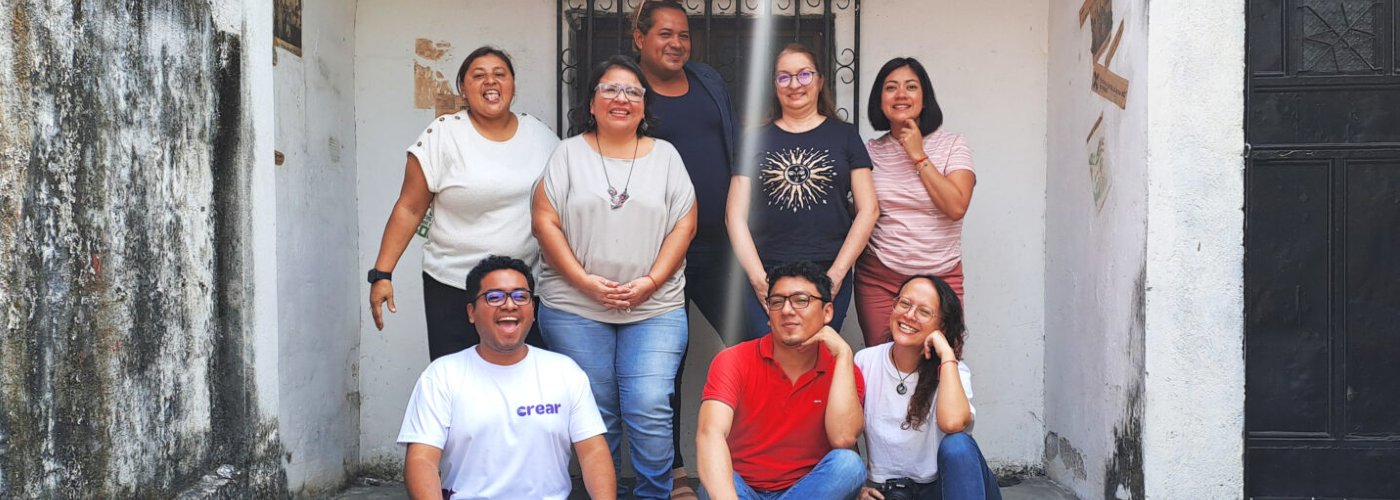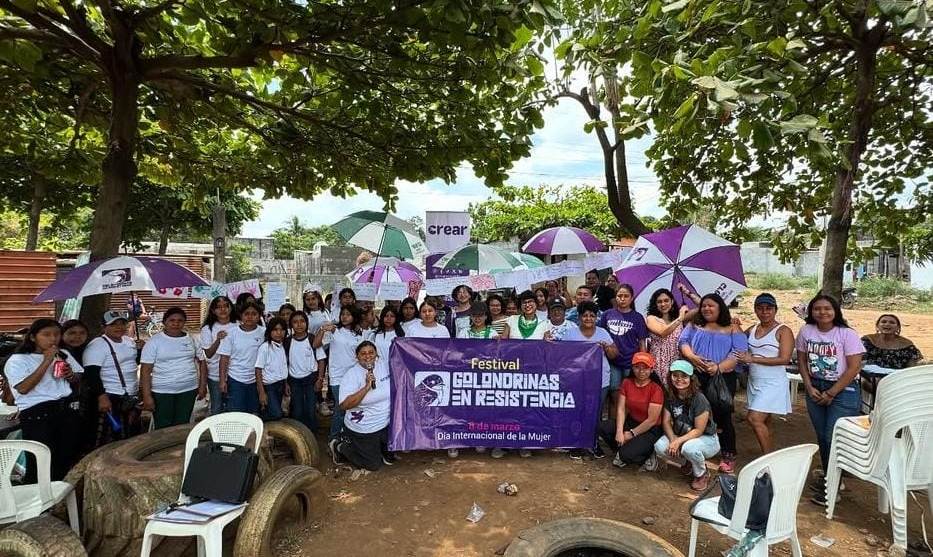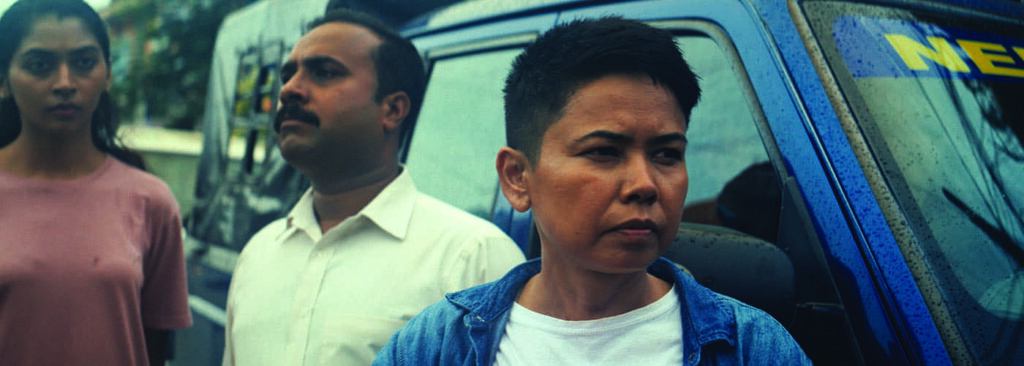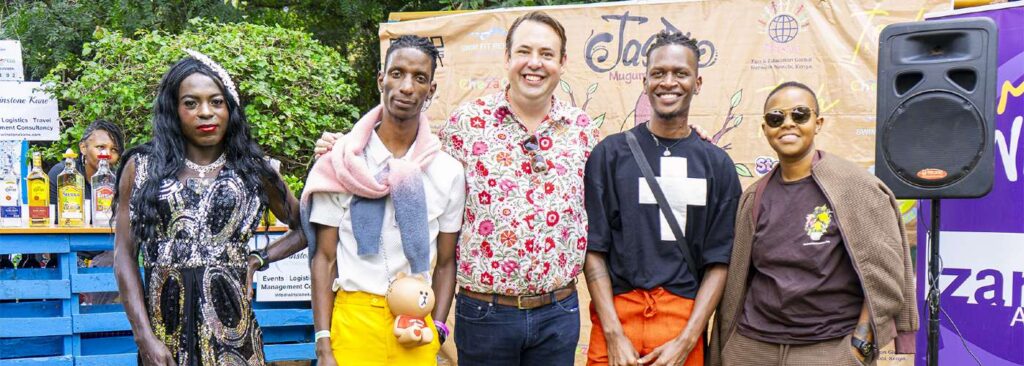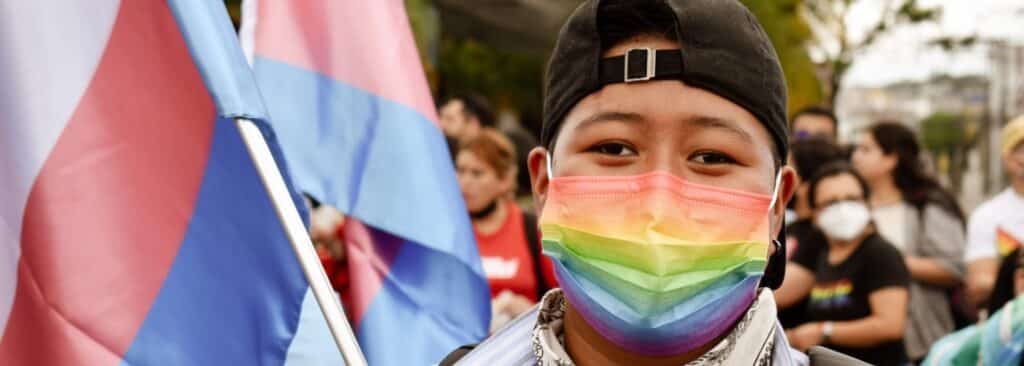By Gabriela Melgar, Regional Communications Officer, Hivos Latin America
The story of Guatemalan civil society organization CREAR is like its name would suggest: letting yourself imagine, conceive new ideas, and act on your own turf.
When I went to meet their team, they were brimming with energy, ready to bring social change to the reality that surrounds them – not by words but by actions. Misael Molina, the organization’s executive director, who identifies as non-binary, tells us about Antonella Alvarado. A trans woman and legal representative, she was the spark that lit the fire in their hearts and activism in Escuintla, a municipality just 60 kilometers from Guatemala City.
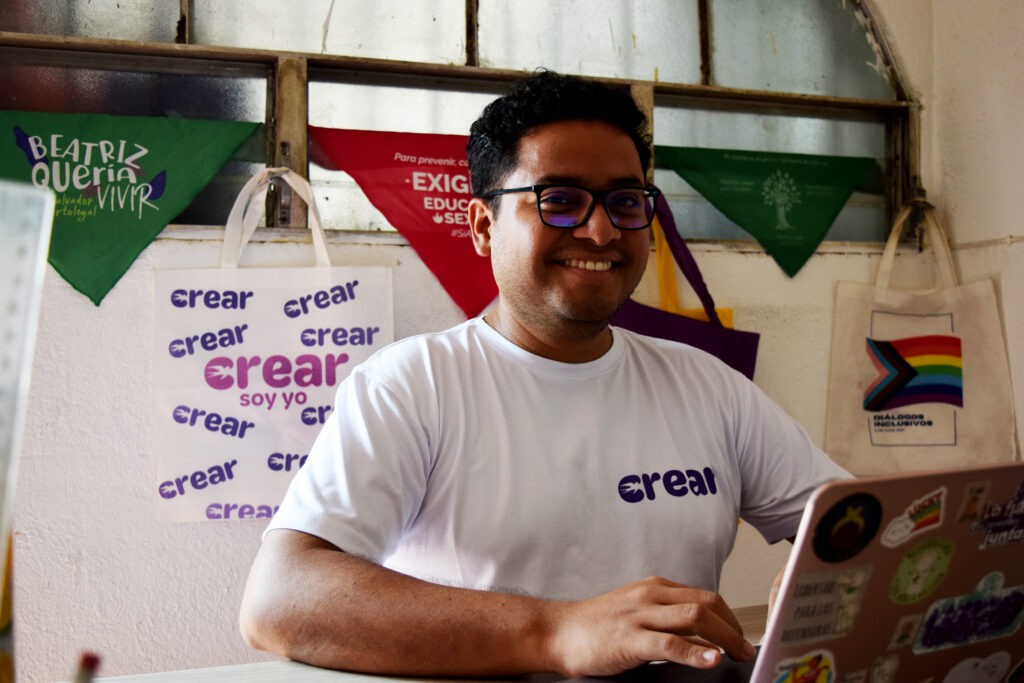
They welcomed me to their office saying that their first meetings were held in a fast-food restaurant because they didn’t have a space of their own. But little by little, they’ve built the organization they first envisioned, with a horizontal structure supporting their heartfelt intersectional work. Not limited to a single issue, they rather see themselves as part of a larger social movement resisting multiple exclusions and inequalities.
CREAR supports the struggles of various groups, amongst others the LGBTIQ+ community, for the right to claim those political, cultural, social, and educational spaces that have been historically taken away from them by a heteronormative, cisnormative, and eminently patriarchal and sexist society.
The power of local ownership
CREAR is a partner in the Hivos program Onward with LGBTIQ+ Rights in Central America. Since they started in 2018, they’ve focused on their immediate surroundings. Almost all their actions take place in the capital city, and they’re the very first civil society organization to operate in Escuintla. Although it’s been a challenge to break new ground, they do so convinced that their work is highlighting the inequalities faced by queer people and women.
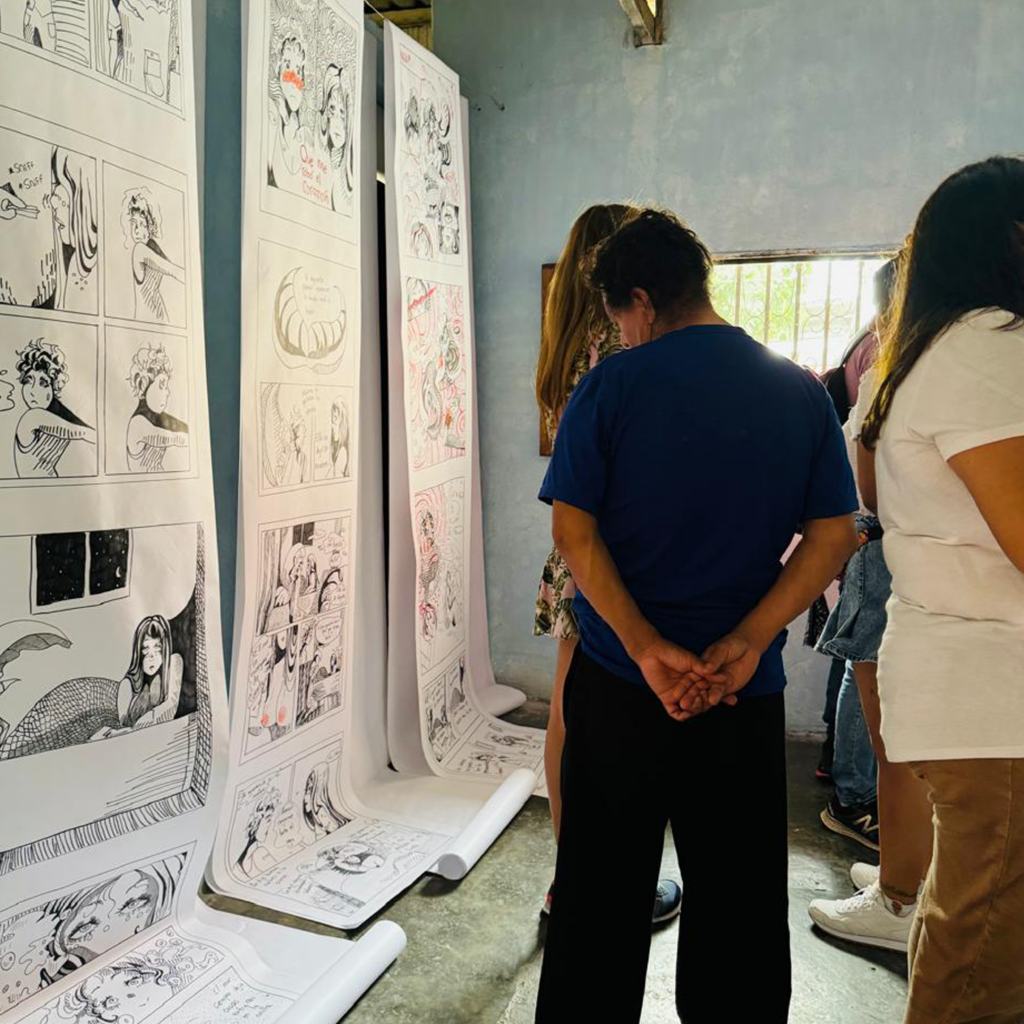
Innovative methodologies for collective action
The essence of CREAR’s work is addressing topics such as feminism, sexuality and open data. How do they do this? By creating narratives focused on human dignity as a basic and fundamental principle, and by questioning theoretical concepts on a daily basis, always challenging and adapting them to their context.
An important question they reflect on as an organization is: How do we understand equity and how do you put it into practice? For them, truly including women, Indigenous women, LGBTIQ+ persons, and people with disabilities requires bringing language and ideas closer to people using simple, colloquial terms. In short, making something foreign, abstract, or complex feel familiar and their own.
They’ve developed special methods for care and action to address these issues. For example, Horchata Rosa*, Las Chachalacas Queer*, the Reading Club, and community cinema. They’re all activities in safe spaces where people can discuss feminism, sexual and reproductive rights, data for advocacy, and other topics of interest to their communities.
Impact: translating data into powerful messages
The Advancing LGBTIQ+ Rights in Central America program has helped them hone and consolidate their data collection skills to better support their advocacy efforts with government agencies and public officials.
The program has also facilitated their attendance at international events, where they’ve built knowledge and collaboration networks to share their work. CREAR has taken flight now: resisting, opening new pathways, and inspiring people around them. They are undoubtedly a living example of how collective power and action can make a difference.
Swallows are native to Escuintla and an integral part of local culture. There is a popular local saying, “One swallow does not make a summer,” but at CREAR, each swallow of resistance makes an entire summer and promotes change in their community.
Thank you, Antonella, Misa, Pao, Mynor and Rafa for inspiring us!
*Horchata is a traditional milk-colored drink made from rice. So horchata rosa is “pink horchata.” Chachalacas are “chatterboxes,” in the sense of chatty people.

